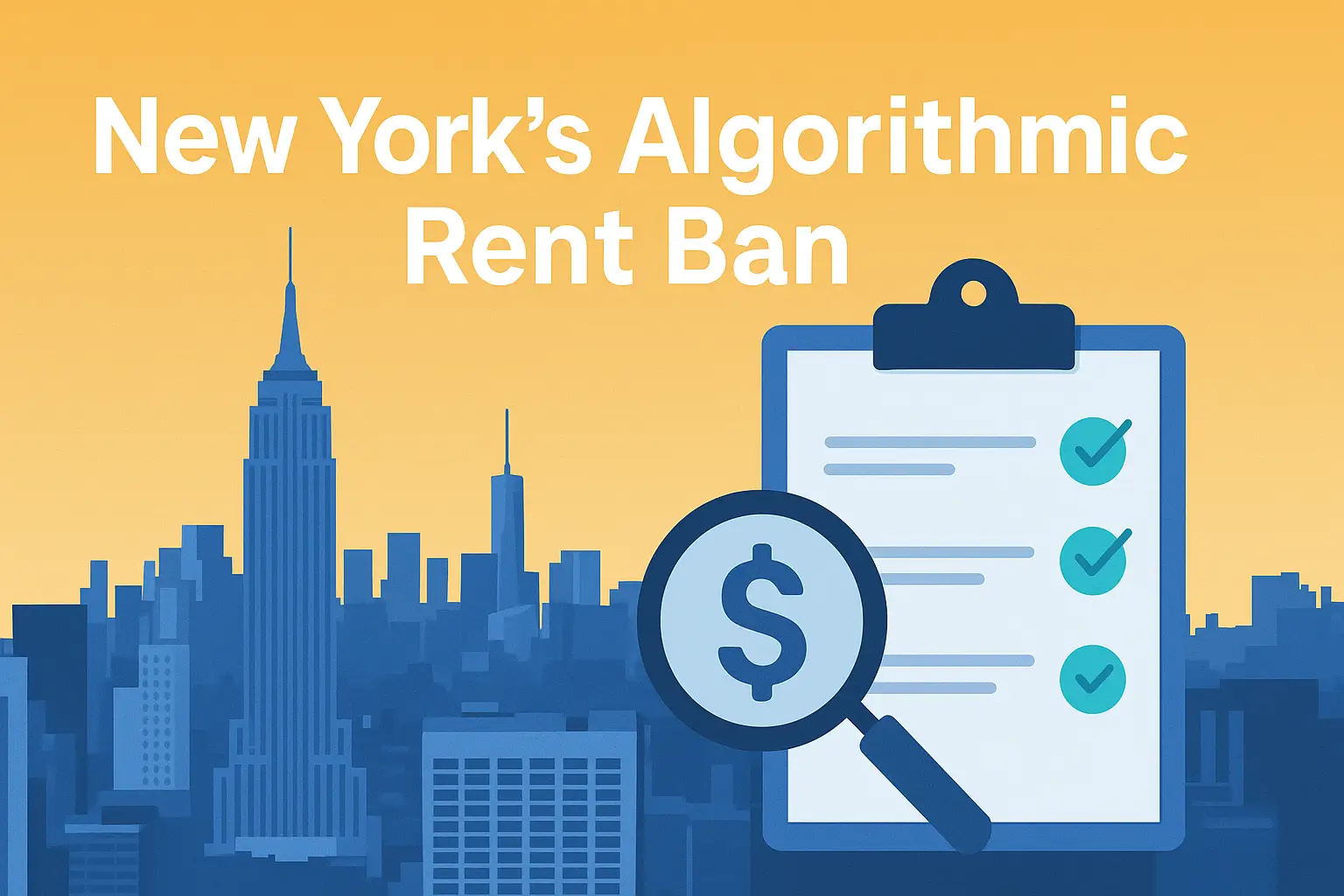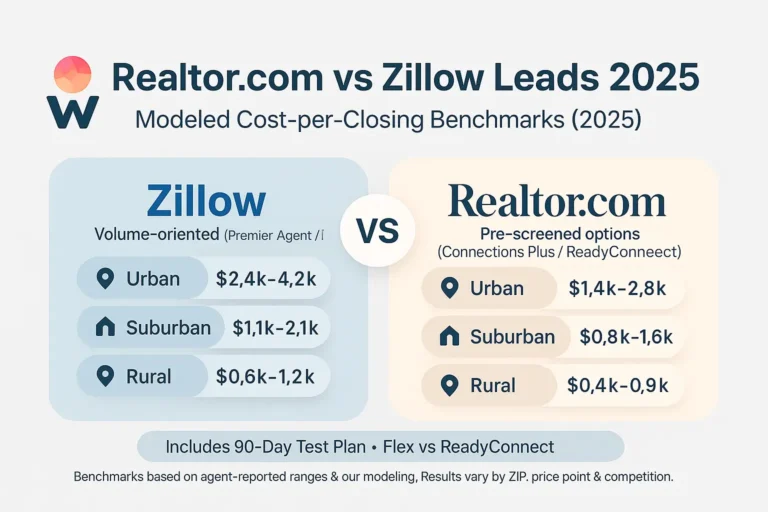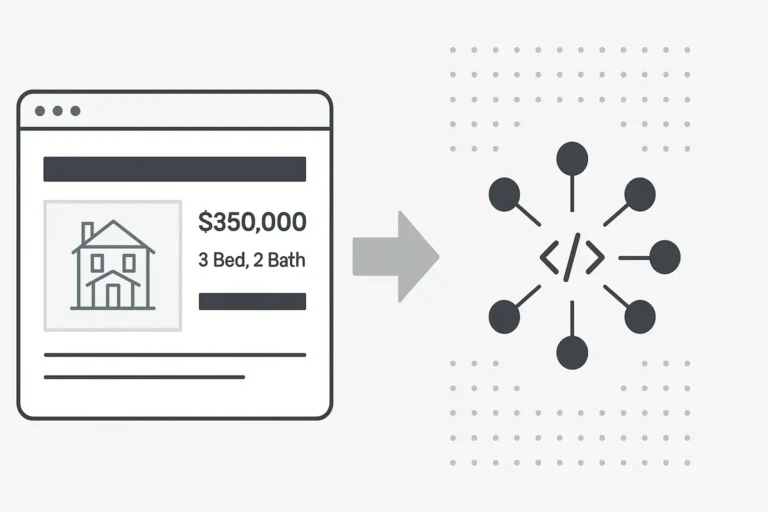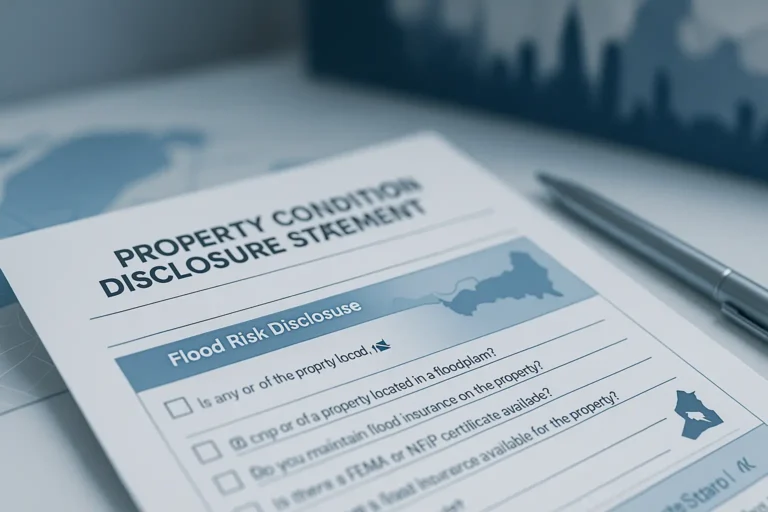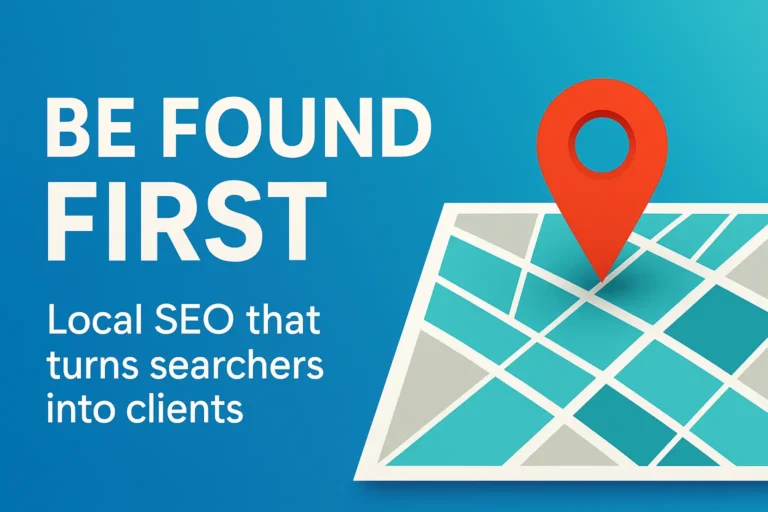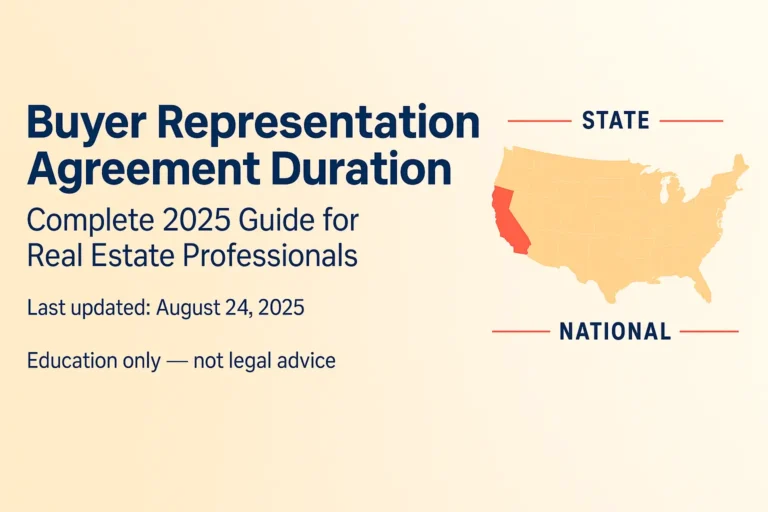New York’s Algorithmic Rent Ban: Complete 2025 Compliance Guide
Effective Date: Approximately December 15, 2025 | Bill: S7882/A1417-B
Last updated: October 18, 2025
What You Need to Know Right Now
On October 16, 2025, New York became the first state to ban algorithmic rent-setting software statewide when Governor Kathy Hochul signed legislation S7882/A1417-B. The law takes effect approximately December 15, 2025 (some sources cite December 16—verify the exact statute provision before finalizing compliance plans).
The NY algorithmic rent ban directly addresses “algorithmic price collusion,” a practice estimated to have cost U.S. renters $3.8 billion in 2024 alone, according to White House Council of Economic Advisers analysis. This legislation gives rise to a legal presumption that landlords using algorithmic pricing tools relying on shared competitor data are engaging in collusion.
If you’re a property manager or landlord in New York, you have approximately eight weeks to discontinue prohibited systems. This guide explains what’s banned, how to comply, and what enforcement looks like.
What the NY Algorithmic Rent Ban Actually Prohibits
The Core Legal Test
If your pricing system includes nonpublic data from competitors AND influences rents of two or more competing properties, it’s likely prohibited.
The statute states: “Two or more rental property owners or managers who set rents with an algorithm are, in practice, choosing to not compete with each other,” whether they do so “knowingly or with reckless disregard.”2
What’s Banned (Red Flags)
These actions violate the NY algorithmic rent ban:
- Pooling nonpublic competitor data (actual rents paid, occupancy rates, concessions, renewal rates)
- Generating coordinated pricing recommendations across competing properties
- Creating pricing floors that prevent competitive price decreases
- Using “revenue protection modes” that restrict available units to inflate prices3
- Sharing data through vendor aggregation, even if anonymized
Key detail: RealPage’s software is used in approximately one in four multifamily housing units nationwide (roughly 3 million apartments).4 ProPublica’s 2022 investigation found landlords follow algorithmic recommendations approximately 90% of the time.5
What’s Still Legal
You may still use these pricing methods:
- Your own internal data exclusively
- Publicly available data from Zillow, Apartments.com, StreetEasy, MLS listings
- Traditional market surveys using advertised rates
- Property management software that uses only public data and your portfolio
- Local market expertise and property manager judgment
Simple rule: Own data + public information = compliant. Shared nonpublic competitor data = violation.
DOJ Sues RealPage: Algorithmic Rent Collusion Explained” — An overview of the U.S. Department of Justice’s case alleging RealPage enabled rent coordination via nonpublic data.
Who’s Covered and Compliance Deadline
Everyone in New York
The NY algorithmic rent ban applies to:
- All landlords (no small-operator exemption)
- Property managers (you share liability with owners)
- Rent-stabilized and market-rate properties (though stabilized units already face separate caps)
Not covered: Commercial real estate, subsidized housing with HUD-determined rents.
Critical Deadline
December 15, 2025 (approximately): You must fully discontinue prohibited systems. After this date, violations create legal presumption of collusion with potential treble damages.
How to Comply: Essential Action Steps
Immediate Audit (Complete by Early November)
Week 1-2: Inventory and assessment
- List every pricing software, vendor, and tool you use
- Document what data each system collects
- Identify systems using nonpublic competitor data
- Request written vendor compliance certifications
- Engage antitrust attorney for legal review
Transition Plan (Complete by December 15)
Discontinue prohibited systems: If you use RealPage AIRM/YieldStar, Yardi RENTMaximizer, or similar tools pooling competitor data, terminate by mid-December.
Implement compliant alternatives:
- Property management platforms using only public data
- Manual analysis of advertised rents on listing sites
- Your portfolio’s historical performance data
- Traditional competitive market analysis
Train your team:
- Explain what’s prohibited vs. permitted
- Document training with attendance records
- Establish pricing decision documentation protocols
Document everything: Maintain records showing:
- Data sources for each pricing decision
- Why you set specific rent amounts
- Evidence of independent competitive judgment
- Keep records for 7 years (covers antitrust statute of limitations)
Banned vs. Allowed Pricing Practices
Banned vs. Allowed Pricing Practices
🚫 Banned Under NY Law
- Pooling or sharing nonpublic competitor data
- Following algorithmic recommendations based on competitor occupancy or concessions
- Sharing sensitive data with vendors that also serve competitors
- Using “revenue protection” modes that coordinate vacancy rates
- Bulk-accepting prices from aggregated competitor data
✅ Allowed Under NY Law
- Using only your own internal property data
- Monitoring publicly advertised rents or listings
- Analyzing public MLS data and market reports
- Setting prices based on your property’s costs and performance
- Using software that analyzes only public data + your portfolio
Enforcement: What You’re Facing
How Violations Are Enforced
Summary: The NY Attorney General and private lawsuits both enforce the ban. The law shifts the burden of proof and enables treble damages, making enforcement highly capable.6
State Attorney General: Can investigate, subpoena records, and bring antitrust actions. The legal presumption of collusion shifts the burden to you to prove non-coordination.
Private lawsuits: Tenants can sue directly for treble damages plus attorneys’ fees. By October 2025, 27 property management companies settled class actions for $141.8 million total, including Greystar’s $50 million settlement.7
Penalty Examples from Similar Bans
- Seattle: $7,500 per violation8
- San Francisco: Up to $1,000 per violation9
- Philadelphia: Treble damages plus attorneys’ fees10
In principle, NY violations carry similar antitrust consequences, though courts may vary in practice.
Frequently Asked Questions
Can I use comps scraped from public listing sites?
Yes. Analyzing Zillow, Apartments.com, or StreetEasy is legitimate market research under the NY algorithmic rent ban. The prohibition targets nonpublic data like actual rents paid and internal occupancy rates.
Are my BI dashboards using MLS feeds allowed?
Yes, if they display only your portfolio metrics plus publicly available data. The critical distinction: does the tool incorporate nonpublic competitor data? Public + your own = compliant.
What counts as “nonpublic competitor data”?
- Actual rents paid in leases (vs. advertised asking rents)
- Real-time occupancy and turnover rates
- Specific concessions offered
- Renewal rates and terms
- Unit-by-unit pricing decisions before public advertisement
Can vendors use anonymized competitor data?
Legally risky and likely violates the ban. Even anonymized, if aggregated nonpublic information from competing landlords generates pricing recommendations, it facilitates coordination.
How long should I keep pricing documentation?
At least 7 years. This covers NY’s 3-year antitrust statute of limitations and federal 4-year limitations, plus discovery margin.
Does this apply to renewals or just new leases?
Both. The NY algorithmic rent ban applies equally to initial lease pricing and renewals.
What if my property manager refuses to comply?
You share liability as property owner. Options: terminate the management agreement, require written compliance certification, or switch to compliant management companies.
Will this actually lower rents?
Uncertain. Proponents cite White House analysis showing potential $70/month average decrease in affected buildings.11 Skeptics note NY’s housing shortage, construction costs, and demand pressures may outweigh pricing-method effects. Meaningful data requires 6-12 months as leases turn over.
Can Congress override this ban?
Possibly. Congressional proposals could preempt state AI regulations for up to 10 years, though this remains under debate as of October 2025. Senator Elizabeth Warren opposes such preemption.
Does this affect commercial real estate?
No. The NY algorithmic rent ban specifically targets residential rental housing.
What about rent-stabilized apartments?
The ban applies, but stabilized units already face Rent Guidelines Board caps. The ban primarily impacts market-rate pricing where landlords had discretion.
Can I still use pricing software for non-pricing functions?
Yes. Property management software remains legal for maintenance tracking, lease management, payment processing, tenant screening, and financial reporting—anything not related to setting rental prices using competitor data.
National Context: The Movement Against Algorithmic Pricing
Federal Action
DOJ lawsuit (August 2024): Comprehensive antitrust action against RealPage, expanded January 2025 to include six major landlords.12
Greystar settlement (August 2025): $50 million—first major resolution.13
State actions: At least nine state attorneys general filed parallel lawsuits (Washington, New Jersey, California, Arizona, Kentucky, Nevada, others).14
State and City Bans
States: California (broader October 2025 ban), Connecticut (first state to ban nonpublic data tools), New York.
Cities: San Francisco (first, September 2024), Philadelphia, Seattle, Berkeley, Minneapolis, San Diego, Jersey City, Providence, Hoboken.
Pending: At least 43 state-level proposals introduced in 2025.
Settlement Wave
27 landlords/property managers settled for $141.8 million total through October 2025.15 Plaintiffs’ attorneys describe this as “a fundamental shift in the multifamily housing industry.”
For Tenants: How to Report Violations
Warning Signs
- Property staff says “the software sets the rent”
- Identical rent increases across different buildings/landlords
- Unusual vacancy levels despite high rents
- No room to negotiate despite market conditions
How to Report
File complaint: New York Attorney General’s Consumer Frauds Bureau at ag.ny.gov/consumer-frauds/filing-complaint or call 800-771-7755.
Sample message: “I am a tenant at [address] managed by [company]. My rent increased from $[X] to $[Y] on [date]. Staff stated [quote about software/algorithms]. I believe this violates S7882/A1417-B. I request investigation.”
Contact advocacy groups: Housing Justice for All (NY), American Economic Liberties Project, local tenant unions, legal aid societies.
Caveats & Uncertainties
Because the NY algorithmic rent ban is new, several uncertainties remain:
- Penalty amounts: Will be established through AG actions and court decisions
- Burden-shifting: Defendants may challenge the legal presumption in litigation
- Anonymized data: Vendor claims of compliance with anonymized data are untested and risky
- Enforcement capacity: Depends on tenant complaints and AG resources
- Market impact: Requires 12-18 months to measure as leases turn over
- Federal preemption: Congressional AI preemption proposals could override state bans
- Edge cases: Precise boundaries of “nonpublic data” and “coordination” will be defined through enforcement
Conservative compliance approaches and ongoing legal counsel are essential.
Key Takeaways
Compliance is non-negotiable: Discontinue algorithmic pricing tools pooling nonpublic competitor data by December 15, 2025. Legal presumption of collusion carries serious penalties including treble damages.
Alternatives remain available: You may still use public data, your own portfolio information, and traditional market research. Data-driven decisions are permitted—coordination with competitors is not.
National trend accelerating: Similar legislation in California, Connecticut, and 43+ state proposals in 2025, plus nine city bans. Monitor all jurisdictions where you operate.
Documentation is critical: Maintain detailed records of pricing methodology and data sources. This proves independent judgment if enforcement questions arise.
Industry shift underway: $141.8 million in settlements by 27 companies signals broad recognition of legal vulnerability. Proactive compliance avoids devastating litigation.
Your Next Steps
Act this week—only eight weeks until the law takes effect:
- Audit your systems: Identify all pricing software and data sources
- Get vendor attestations: Request written confirmation of compliance status
- Schedule legal counsel: Engage antitrust and NY real estate attorney
- Document transition: Maintain detailed records of compliance efforts
Property managers and landlords who act now avoid last-minute operational disruption and reduce legal exposure. Delay creates violation risk and significant financial penalties.
Sources and Citations
About This Guide: Last updated October 18, 2025. Reflects current information on NY’s algorithmic rent ban (S7882/A1417-B). Consult qualified legal counsel for advice specific to your circumstances. This guide is for informational purposes and does not constitute legal advice.
Disclaimer: Effective date calculations based on publicly available information. Some sources cite December 16, 2025 instead of December 15. Verify exact effective date via enrolled bill text or NY Department of State before finalizing compliance timelines.
Stay Updated: Bookmark and check regularly for updates as AG enforcement guidance develops. Subscribe to

